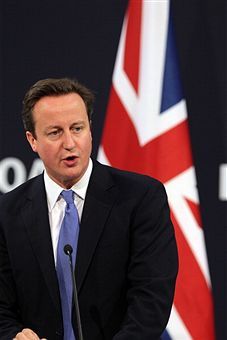 The FT’s Alex Barker has made an important discovery in the OBR’s report. The coalition’s immigration cap will make no impact on net migration.
The FT’s Alex Barker has made an important discovery in the OBR’s report. The coalition’s immigration cap will make no impact on net migration.
‘The interim OBR’s June Budget estimates of trend growth estimates were based on an average net inward migration assumption of 140,000 per annum….
Since June, the Government has announced a limit of 21,700 for non-EU migrants coming into the UK under the skilled and highly skilled routes from April 2011, a reduction of 6,300 on 2009.
At this stage, we judge that there is insufficient reason to change our average net migration assumption of 140,000 per year from 2010, which remains well below the net inflows of 198,000 seen in 2009.’ So, the pledge to limit immigration to the ‘tens of thousands’, an important Conservative election promise that survived the Coalition Agreement, will go the way of all flesh, deepening the disaffection of ANTI voters.
Bureaucrats have long warned that it would be so. The preponderance of migration from within the EU means that caps on non-EU migrants make a piffling indent on the overall net figure for a given year. Also, there is a determined administrative won’t. Whitehall is deaf to reform because the low skilled service economy needs migrant workers: it is cheaper for employers to import rather than retrain; (also, welfare claimants are discouraged from taking employment that would curtail their benefits). The Business Department, aided by its Lib Dem minister, put up strong resistance to the Home Office’s reforms. A compromise was reached, but one that was feted by business leaders, whose interests had been protected.
The immigration question is at the beginning of its latest effervescence. Mainstream politics has not considered the cultural side of the question, but it is fascinated by the economic side. Structural reform is inept: the government cannot reduce demand for these jobs by decree. This increases the importance of IDS’ reforms, and its unintended consequences. If he can make work pay, then it may become cheaper for companies to retrain the local population, rather than simply import a new one. David Cameron’s ambitious promises make the issue imperative – especially as the economy recovers and, supposedly, 2 million new private sector jobs are created.






Comments